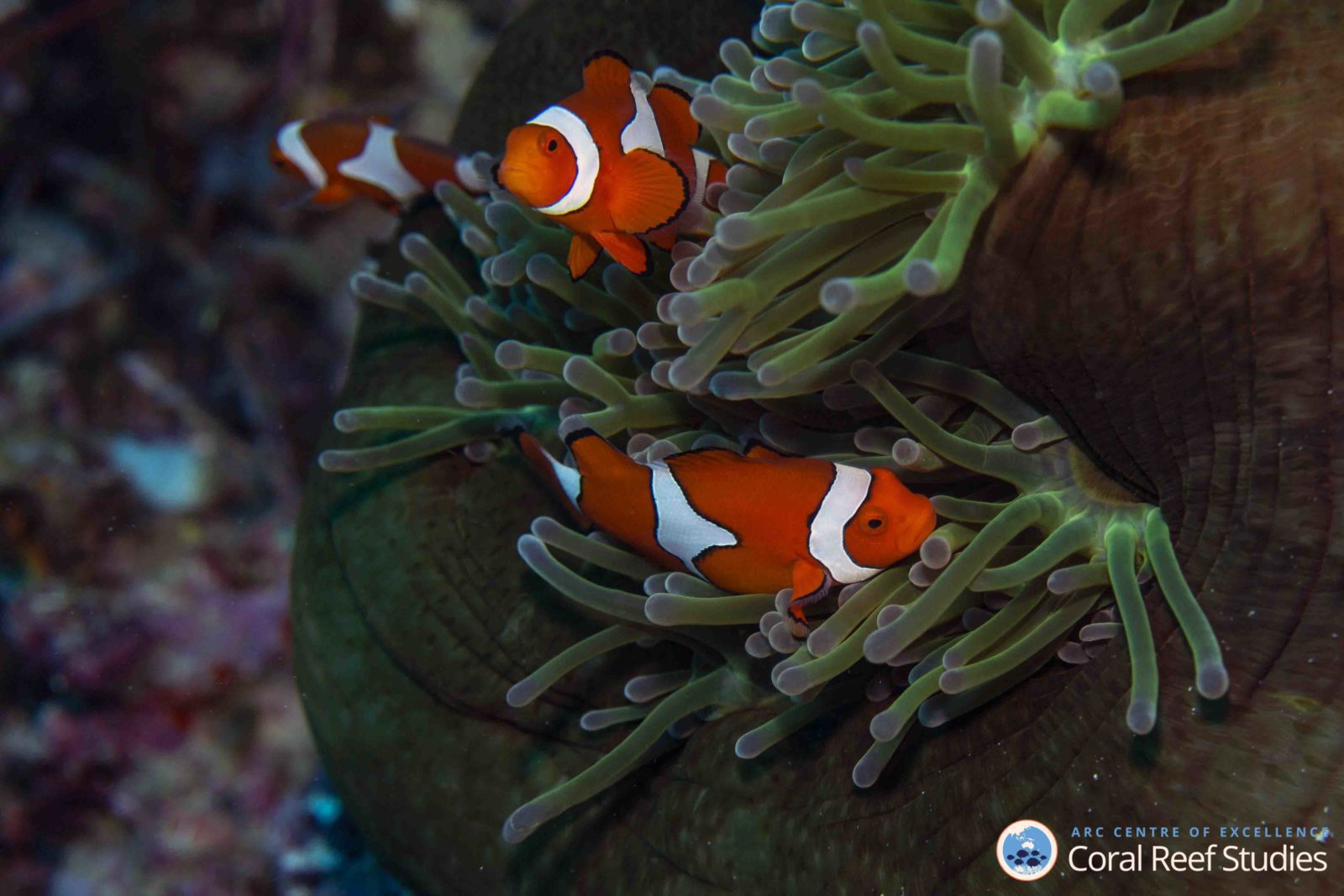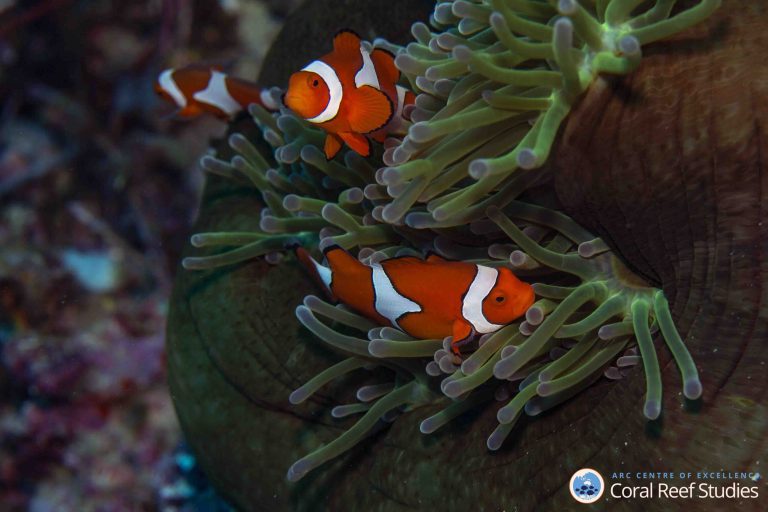DIVING NEWS
Nemos need good homes, not genes

Clownfish on their anemone at Kimbe Island. (Picture: Simon Thorrold / WHOI)
The long-term success of clownfish depends more on living in a good neighbourhood than it does on having good genes. That’s the conclusion of an international team of marine biologists following a 10-year study carried out by scuba diving on a coral reef in Papua New Guinea.
The collaborative research programme is said to be the first of its kind to evaluate the genetic capacity of a natural marine population to adapt to environmental change. Led by France’s National Centre of Scientific Research (CNRS), it also involved researchers from Australia, the USA, Saudi Arabia and Chile.
Family trees were established for the entire population of wild orange clownfish (Amphiprion percula) at an island in PNG biodiversity hotspot Kimbe Bay. The scientists faced the “extremely challenging” task of identifying each fish individually and sampling its DNA to establish family relationships over five successive generations.
This allowed them to assess the ability of the population to persist, and the fishes’ genetic potential to adapt to increasingly rapid environmental change – a potential that turned out to be close to zero.
“Long-term genetic datasets for individuals within a marine population are incredibly rare,” explained co-author Dr Benoit Pujol of CNRS. “Until now, we just haven’t had the data required to answer this question.”
Reproductive success in clownfish was found to depend almost entirely on them finding high-quality anemone homes.
“For a clownfish, it’s not ‘who’ you are, but ‘where’ you are that matters for your future reproductive success,” said co-author Prof Geoff Jones, of Australia’s ARC Centre of Excellence for Coral Reef Studies at James Cook University.
“In terms of their genes, clownfish are as good as they can be at finding a suitable habitat. The rest comes down to luck – of being in the right place at the right time. The success of big families that extend over many generations is linked to high-quality habitats, not their shared genes.”
1 December 2019
“There are no particular genetic variants that contribute more offspring to the next generation. The quality of the host anemone contributes most to the ability of the clownfish to renew its population.”
If the high-quality anemones remained healthy, the clownfish population would survive but, as the study points out, anemones, like corals, are directly threatened by climate change. Their symbiotic algae depart when under stress, as when ocean waters warm, and if they don’t return the anemones starve to death.
“Nemo is at the mercy of a habitat that is degrading more and more every year,” said co-author Dr Serge Planes of CNRS. “To expect a clownfish to genetically adapt at a pace that would allow it to persist is unreasonable.”

